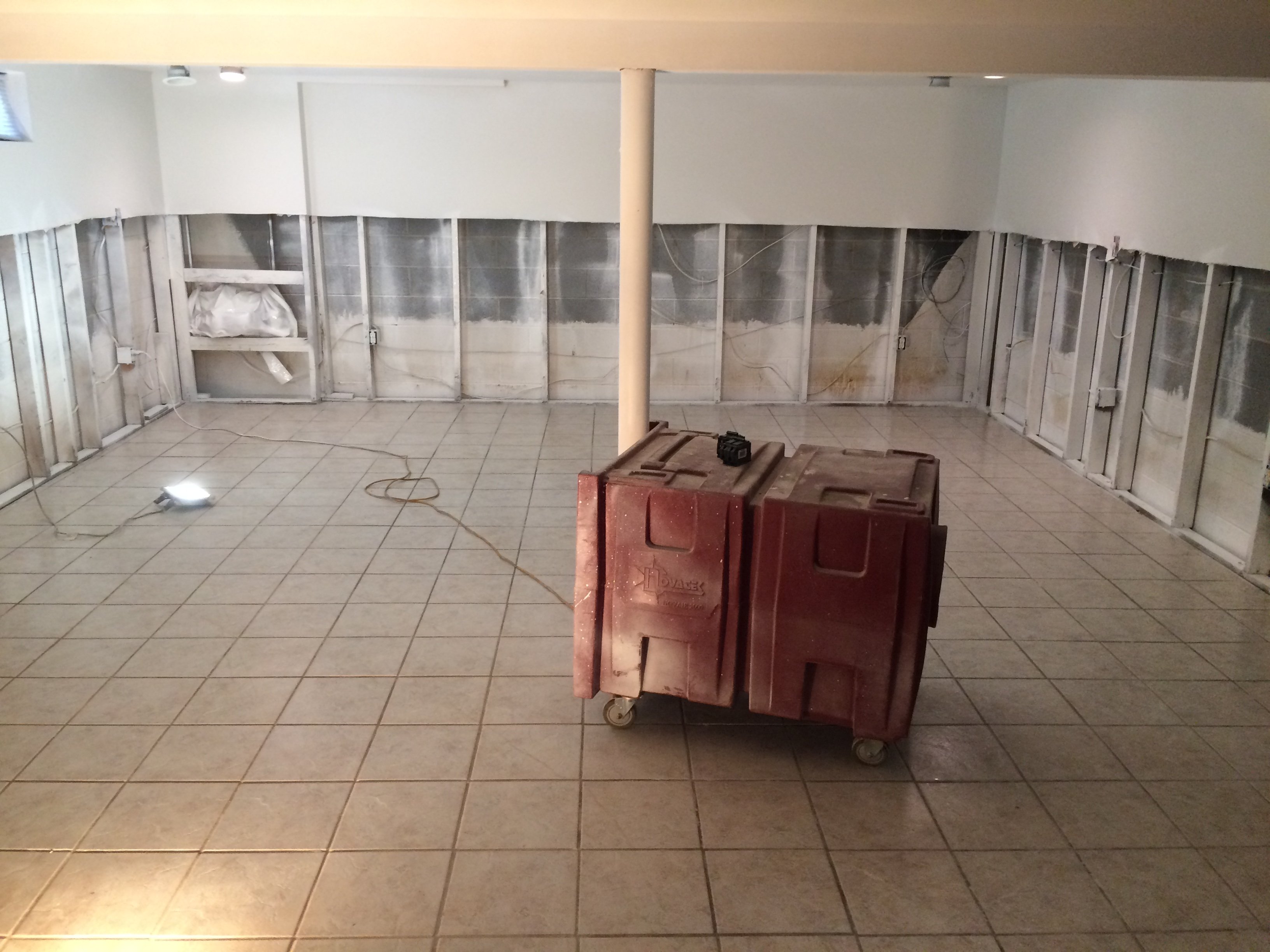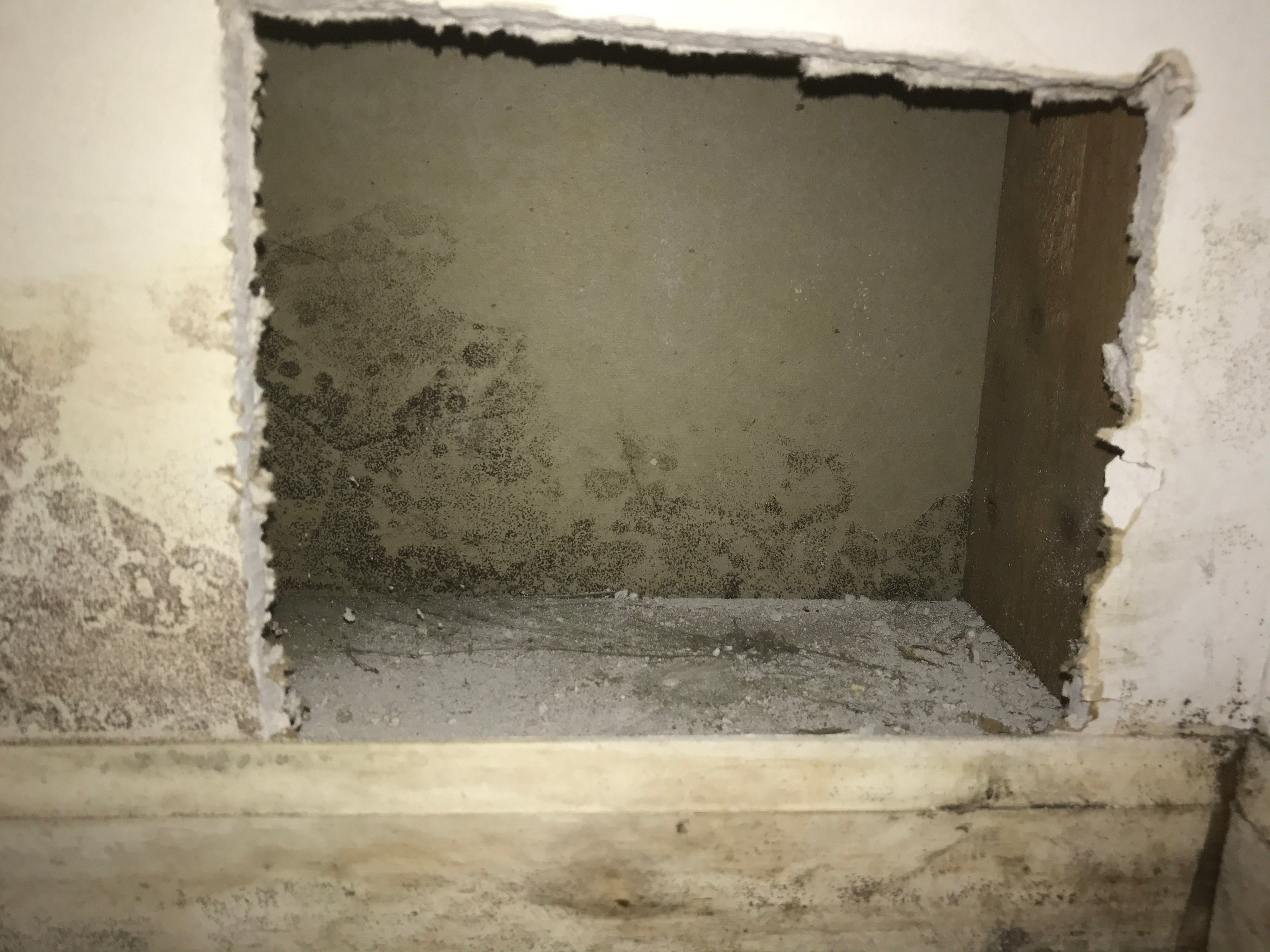Mold Remediation in New Jersey, Pennsylvania & Delaware
Curren has been performing mold remediation and mold inspections in NJ, PA ,& DE for over 20 years. Expert professional mold advice comes from experts, with years of experience, like the professionals you will find at Curren.
Mold is ubiquitous, it will be everywhere you are, that said when it is everywhere it is invisible to the naked eye. When should you remediate mold? Mold remediation is warranted when mold is visible, as a small area of growth (size of your hand) can have tens of thousands of spores. Mold remediation can follow the simple rule “If you see it, remediate it”.
The photo show that when you can see mold on a wall, it is often present inside the wall. This happens because the wall cavity is dark and holds moisture.
Mold you cannot see can cause health issues in otherwise healthy people. In these situation mold maybe invisible, typically behind a wall, in a crawlspace growing unbeknownst to the building occupants. You can find hidden mold by air testing, the photo bellows shows an air test being completed in a home prior to buyers moving in.
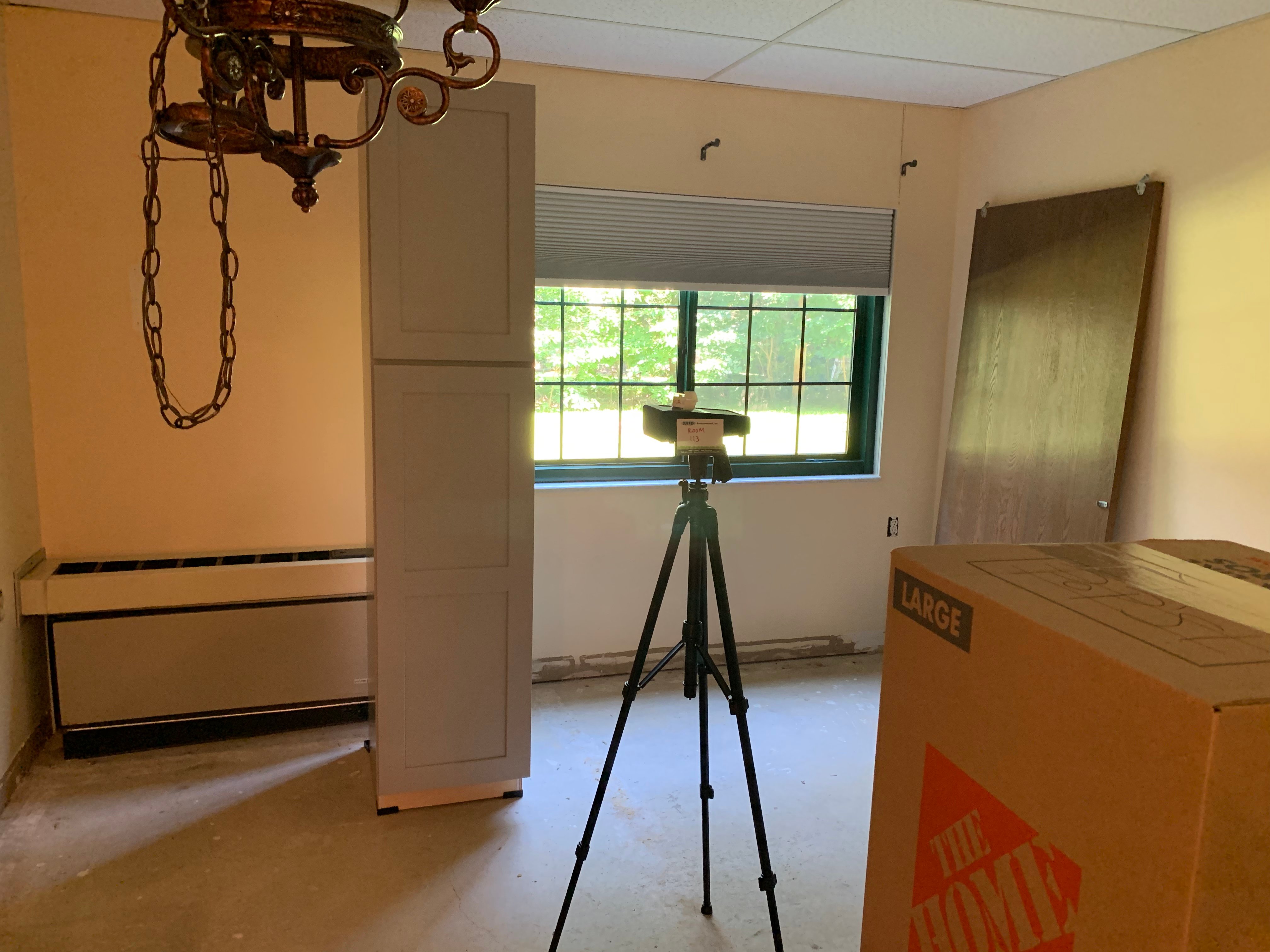
These are thousands of types of mold but depending on where you live you are most like only subject to a few hundred possible different types of spores.
We have years of mold expertise and approach every mold project with a trained eye and wealth of prior project experience. When you engage Curren you are getting expert advice and professional remedial services.
How mold grows can be very different based on the specific site conditions that caused the growth. A plumbing leak that just occurred is a different situation than mold that is found in an unfinished basement that has been growing for years.
Our mold inspection service are fee based as we are providing a professional opinion. The term free mold inspection, well that basically means your going to get an opinion that yes you have a mold problem and need to remediate. You can’t do free services forever. Not every home has mold.
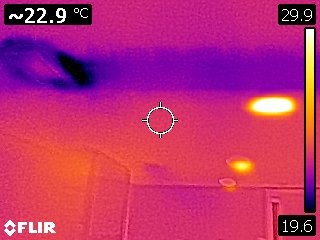
New Home Mold
How can a new home have mold? New homes get mold during construction as the wood is exposed to the elements (rain, snow, humidity) and mold can grow on the wood framing and timber before they are even set in place. As a home is framed rain can get in, allowing the framing to absorb moisture, giving mold a chance to grow. The room doesn’t get set immediately, you have to pour a foundation and frame the house. Water that sits in the open basement, doesn’t get pumped out until electricity is turned on, maybe week 8 of construction. Seal up the home with all this moisture and you can get mold. What will eventually stop growth is sealing up the home and operation of the HVAC system. There are select areas in new homes where we find growth.
Newer homes, under 20 years old are also common growth areas for mold as no one thinks that anything will fail in a new home, but new homes come with 1 year warranties because things to fail. The average failure rate for items in a new home occur in the first 20 years, this is where items fail.
Historic Mold or Old Home Mold
Mold needs moisture, be it rain, condensation or humidity. Humidity and condensation can occur on a small scale throughout the year, allowing mold to grow for short periods of time. Areas of small mold growing, can fuel larger areas of growth, which is multiplied over decades of the home’s life and suddenly. (If you remember the movie the blob, the blob got bigger as it consumed things, well the more mold grows it also grows seeds to speak to allow more mold to grow).
Plumbing Leaks
The easiest mold to address are from plumbing leaks that occur and are noticed by the building occupants. A leaking toilet will be found pretty quickly. A hot water heater that fails will be discover by either no hot water or a flooded basement. Rain entering your basement will be discovered when you walk in the water. My point a sudden water event is noticeable, if your home. Mold need 72 hours to grow, so if you have a water leak, find it fast, fix it fast, you were too fast for the mold to grow. That said some leaks start as drip, maybe a shower drip that only drips when the shower is on. This could take weeks or months to appear as a stain in the ceiling, in this case, you probably have mold. Favorite incorrect statement, “The water leak went away”. Water leaks don’t go away, ever!
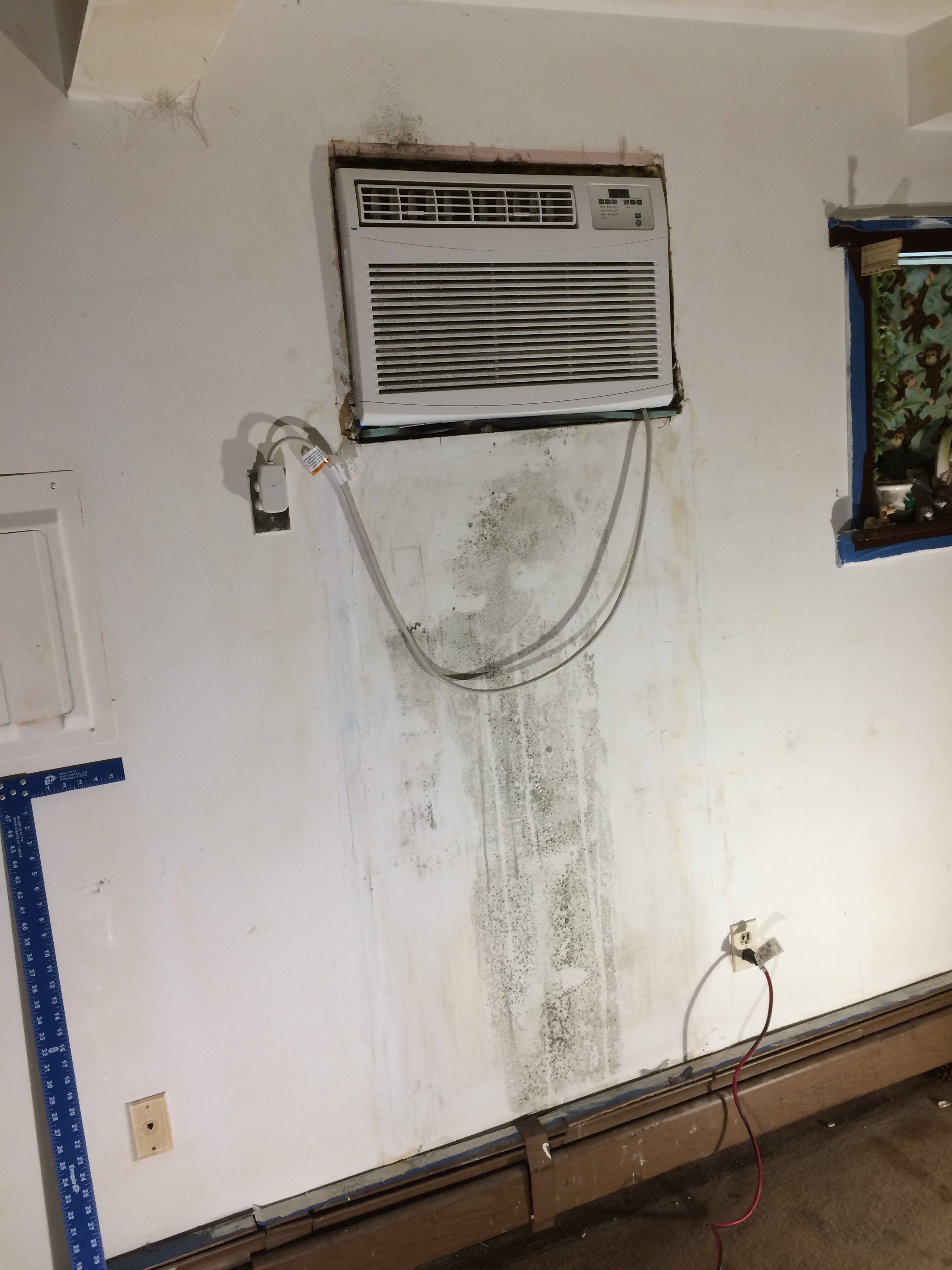
Historic water issues that went unnoticed.
Can you have a water issue and not know it. Yes, you can have a water issue and not know if or you simple choose to ignore it. How many time shave I heard that basements are supposed to smell musty, too many. Basements are not supposed to smell musty, ok they are supposed to smell musty if mold is growing as the musty odor is growing mold off gassing. You don’t want a musty basement.
How do you remediate mold?
You remediate mold by fixing the cause of the mold (with over 20 years of experience, we have seen just about every cause). Fix the water issue, you then remove the mold via specialized vacuums, air filters and fungicides that will remove and kill mold. The final step of mold remediation will include coating impacted organic surfaces with a warranted fungistatic coating. The fungistatic coating is crucial since it contains compound that inhibit mod growth and the best ones have 10 year warranties. We do more sites that I care to count that had prior unsuccess mold remediation, unsuccessful meaning the mold came back because the mold remediation did not use an encapsulate.
